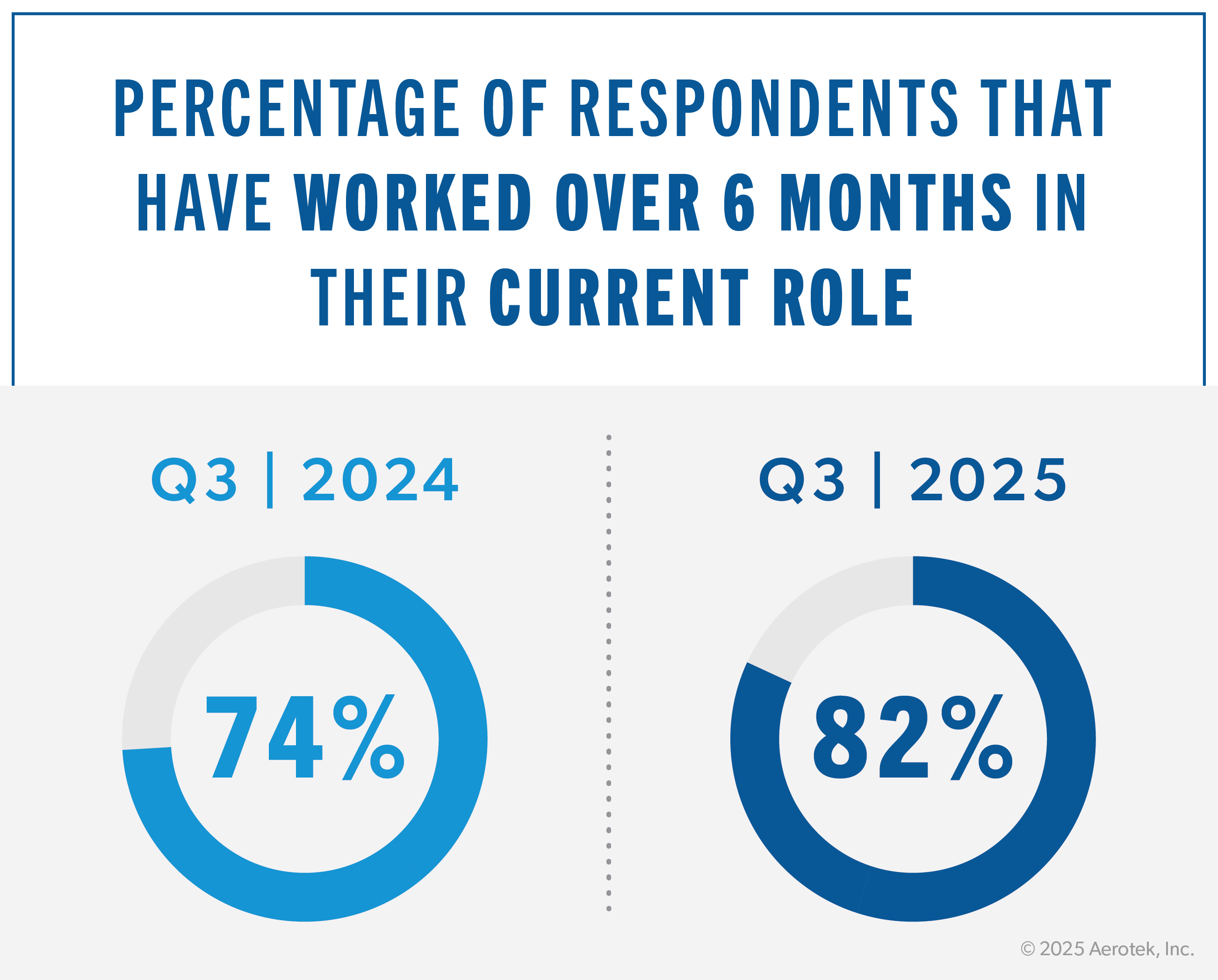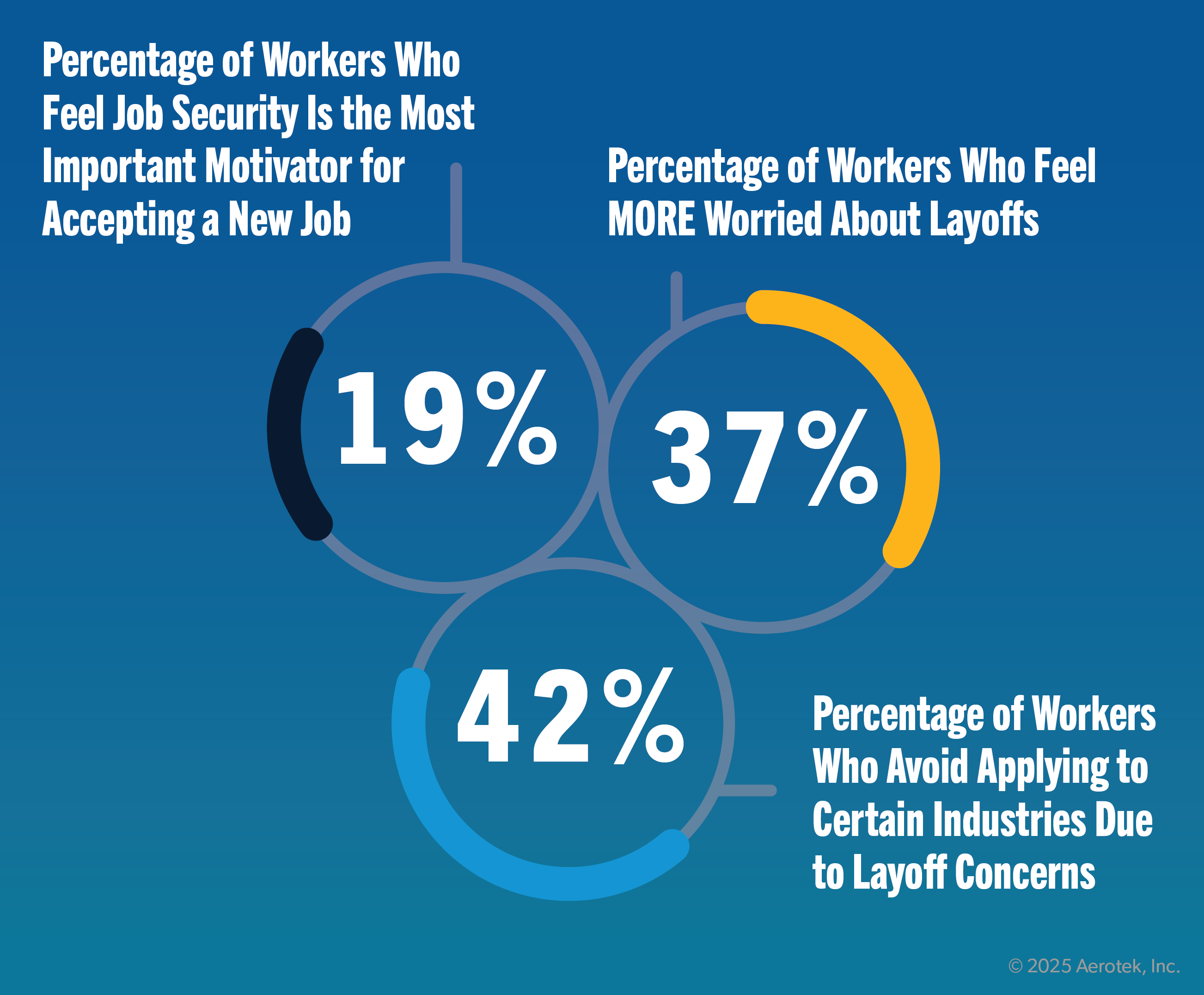Signaling Job Security: What Job Seekers Want to See
The Growing Demand for Job Security
37 percent of survey respondents indicated they are more worried about being laid off from their next job compared to a year ago. 36 percent say they are experiencing the same amount of worry compared to last year. The labor market has drastically changed over the past few years. We are a long way from “The Great Resignation” and other trends that characterized a job market that boasted more opportunities. As we reported in previous surveys, applicants believe that companies are slowing down their hiring processes and this is creating an environment that requires more effort from job seekers, but is also making employees less likely to explore other career options.Understanding Job Hugging and Its Connection to Job Security
The term “job hugging” describes the trend of employees clinging tightly to their current jobs, sometimes even forgoing opportunities for advancement, higher pay or better alignment with their passions. Rather than seeking new roles or embracing career changes, many workers are opting to “hug” their existing positions - holding on tightly for the security they provide.
This behavior has grown more pronounced as anxieties about layoffs and economic uncertainty have intensified. The pursuit of job stability is a driving force behind job hugging. Workers are acutely aware of the risks that come with change in uncertain times, such as losing seniority, benefits or simply the familiarity of their current environment. As a result, they often choose to remain in their current role, valuing job security and predictability above all else.

Layoff Fears Alter Career Choices and Limit Opportunities
The nervousness surrounding job security not only manifests in how workers cling to existing roles, but it also shapes the choices they make when considering new opportunities. 42 percent of job seekers actively avoid applying to certain industries due to fears of layoffs. This heightened caution can have profound implications. Sectors perceived as volatile or prone to downsizing face a diminished talent pool, while job seekers limit their prospects by avoiding entire sectors of the economy.
In today’s competitive labor market, when companies aren’t aggressively hiring, such self-imposed boundaries are especially restrictive. For job seekers, the desire to safeguard themselves from perceived instability may inadvertently narrow their career paths, stifle professional development and reduce their bargaining power.

How Employers Can Communicate Job Security and Stability
Addressing job security is not about providing stable employment. It is about how employers communicate their commitment to their workforce. Our Job Seeker Survey reveals how applicants want employers to provide a sense of stability:
● Training and Upskilling: A majority (41 percent) of respondents say employers should offer training and upskilling programs to communicate stability. The desire of job seekers to improve and acquire new skills is becoming increasingly recognized. According to survey data, 13 percent of respondents stated that opportunities to acquire new skills were the main reason for accepting a job.
● Career Advancement: Employers also value the ability to offer career advancement opportunities. 32 percent of job seekers believe employers should offer clear pathways for professional growth to communicate stability within the company. This can signal a long-term commitment to their employees’ futures while fostering loyalty and a sense of belonging — two qualities that can directly impact productivity and morale.
● Financial Transparency: Employers shouldn’t feel obligated to completely open their books for employee review, but some insight into the company’s general financial health or goals can help their workforce feel more valued. 19 percent of job seekers believe this is the best way to demonstrate security.
In an environment characterized by economic swings and rapid change, organizations must go beyond compensation and benefits to address the deeper needs of their workforce. Doing so is not just the right thing to do — it is also a strategic advantage.
By understanding the anxieties of today’s job seekers, offering opportunities for advancement and communicating transparently about the health and direction of the company, employers can build a loyal, engaged and high-performing team.
Show candidates the stability they’re seeking. Partner with Aerotek to build a workforce that’s engaged, resilient and future ready.
